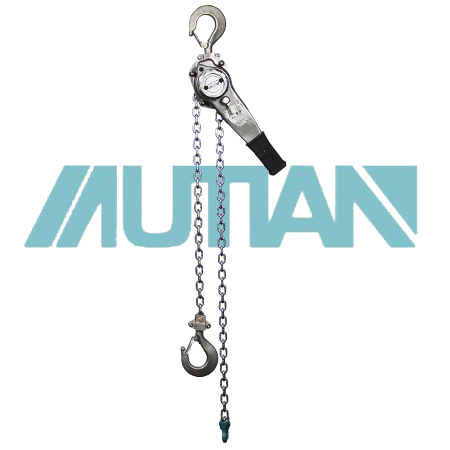 中文版
中文版



Welcome to contact us by phone:0086-0312-7969888
While corrosion-resistant lever hoists, such as those made from stainless steel, offer advantages in harsh environments, there are still risks associated with their use:
Mechanical Failure: Despite their corrosion resistance, components of lever hoists can still wear out or fail due to factors such as fatigue, improper use, or manufacturing defects. This can lead to sudden equipment failure and potential accidents if not detected and addressed promptly.
Reduced Load Capacity: Corrosion-resistant coatings or materials may affect the load capacity of the hoist compared to their non-corrosion-resistant counterparts. It's crucial to verify the load capacity of the hoist and adhere to manufacturer recommendations to avoid overloading, which can lead to structural failure.
Misuse or Improper Operation: Regardless of their corrosion resistance, lever hoists can still be misused or operated incorrectly, leading to accidents or injuries. Improper use includes exceeding the hoist's rated capacity, using the hoist for purposes other than intended, or neglecting proper safety procedures.
Environmental Factors: While corrosion-resistant materials can withstand exposure to certain environmental conditions better than non-resistant materials, they may still degrade over time if subjected to extreme conditions such as prolonged exposure to corrosive chemicals, high temperatures, or abrasive substances.
Maintenance Neglect: Assuming that a hoist is corrosion-resistant may lead to neglect of proper maintenance practices. Regular inspection, lubrication, and maintenance are essential to ensure the continued safe operation of the hoist, regardless of its corrosion resistance.
Potential Contamination: While stainless steel is resistant to corrosion, it may still be susceptible to contamination if it comes into contact with corrosive substances or particles. Contamination can compromise the integrity of the hoist's components and lead to premature failure.
Safety Hazards: The presence of corrosion-resistant coatings or materials on lever hoists may introduce additional safety hazards if these coatings deteriorate or flake off over time. This can create sharp edges or rough surfaces that pose risks to operators or damage to lifted loads.
To mitigate these risks, it's essential to follow manufacturer guidelines for inspection, maintenance, and safe operation of corrosion-resistant lever hoists. Regular training of personnel on proper hoist usage, coupled with routine inspection and maintenance schedules, can help ensure the continued safe and efficient operation of the equipment.
X